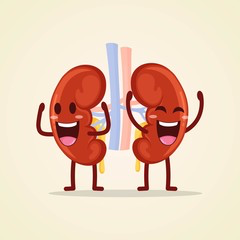
Every year millions of people in the U.S are diagnosed with sexually transmitted diseases (STD’s) or sexually transmitted infections (STI’s). It’s a growing concern that affects younger age groups between the ages of 15-24 as well as seniors (the second fastest growing demographic!). Many individuals don’t show any symptoms or they develop very late. Untreated STD’s/STI’s can lead to serious health complications in the near future. It can even impact someone's fertility.
AFC Urgent Care Danbury is motivated to help spread awareness and information about STD’s and STI’s so that individuals who are sexually active can make better informed decisions and enjoy one of life’s pleasures with ease. We’ve created a guide to keep you informed.
Facts You Should Know About STD’s And STI’s
STD’s are diseases that are passed from one person to another through sexual contact. These include chlamydia, gonorrhea, genital herpes, human papillomavirus (HPV), syphilis, and HIV. Many of these STD’s do not show symptoms for a long time. You can get an STD by having vaginal, anal or oral sex with someone who has an STD. Anyone who is sexually active can get an STD. Some STD’s, like herpes and HPV, are spread by skin-to-skin contact.
The CDC states that the following people are most affected by STI’s:
-
Adolescents and people aged 15 - 24
-
Gay, Bisexual, and other men who have sex with men
-
Pregnant people
As you will see below, since 2016, Chlamydia has been the only STI that has dropped. The other three STI’s have increased over the years.
-
Chlamydia - 1.6 million cases; down 1.2% from 2016
-
Gonorrhea - 677,769 cases; up 45% from 2016
-
Syphilis - 133,945 cases; up 53% from 2016
-
Congenital Syphilis - 2,148 cases; up 235% from 2016
These are the most common STD and STI symptoms:
-
Painful or frequent urination
-
Unusual discharge from the penis or vagina
-
Sores or warts on the genital region
-
Itching and redness in the genital region
-
Blisters or sores in or around the mouth
-
Abnormal vaginal odor
-
Anal itching, soreness or bleeding
-
Abdominal pain
-
Fever
Protect Yourself from STD’s and STI’s:
Use Condoms - Correct and consistent use of the male latex condom is highly effective in reducing STD transmission. If you have latex allergies, synthetic non-latex condoms can be used.
Abstinence - The most reliable way to avoid infection is to not have sex (i.e., anal, vaginal or oral).
Vaccination - Vaccines are safe, effective, and recommended ways to prevent hepatitis B and HPV.
Reduce Number of Sex Partners - Reducing your number of sex partners can decrease your risk for STD’s.
Mutual Monogamy - Mutual monogamy means that you agree to be sexually active with only one person, who has agreed to be sexually active only with you.
AFC Urgent Care Danbury East Can Confidentilly Help You Get Tested For STD’s/STI’s
AFC Urgent Care Danbury wants you to know that our doors are open 7 days a week and we can answer any question related to STD’s, STI’s, confidential testing and prevention. Our staff is very professional and friendly making it a safe space for you to express your concerns.
Stop by today for confidential STD testing. Walk in or make an appointment here. We also offer a bill pay option on our website making it easier for you to not only check in, but check out.
Urgent care made easy!


